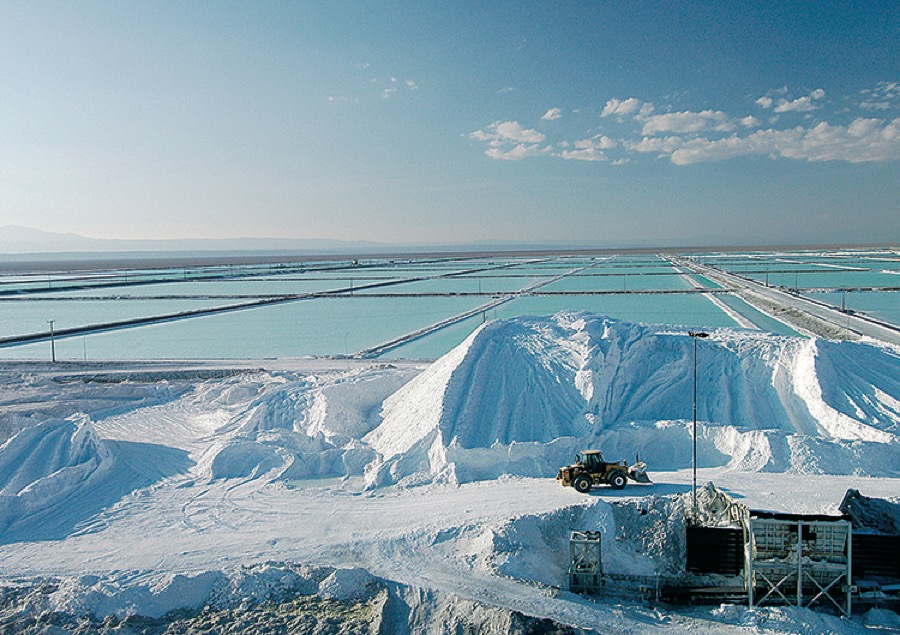Tapping the lithium rush, Canadian miner stakes claims in Utah

WASHINGTON, March 2 (Reuters) – A small Canadian mining company has staked claim to mineral rights on over a hundred thousand acres of federal land in Utah since last year, hoping to tap lithium deposits from spent oil wells to feed America’s high-tech battery industry.
The play by Vancouver-based MGX Minerals is part of a global scramble for the super-light metal used in smart phones, electric vehicles, and storage for power generated by wind and solar installations.
MGX Minerals shares have surged 40 percent this year to C$1.43 ($1.11). Still, analysts were divided over prospects of the move. The company said it was encouraged by President Donald Trump’s administration’s move this year to encourage more U.S. production of lithium and other metals on a list of “critical minerals” it says are important for national security.
U.S. officials “understand that the U.S. needs a supply of lithium and is cognizant of global competition,” said MGX CEO Jared Lazerson in an interview. He called Utah “one of the best places to start for lithium for North America.”
The United States currently has only one active lithium operation, owned by Albemarle Corp in Nevada, and imports more than half the lithium it consumes. Other companies, including Westwater Resources, US Lithium Corp and Pure Energy, are also trying to develop new lithium projects in the United States to feed rising demand.
MGX is focusing its mineral rights claims on southeastern Utah’s Paradox Basin, a productive oil and gas drilling area. The company plans to extract lithium from drilling wastewater, using a proprietary filtration system it has piloted in western Canada’s oil patch.
Much of the world’s lithium is filtered from underground brines, though relatively little is extracted from petroleum wastewater, the volumes of which have been increasing in the United States due to a production boom.
“In this fundamental shift we are in between fossil fuels and renewable energy, we get these hybrid models,” Lazerson said, referring to his company’s technology.
Analysts have given the venture mixed reviews.
“Think about drilling a hole 2,000 meters long, through rock, to hit brine in Utah, and coming up with negligible lithium,” said Jon Hykawy, a battery minerals analyst at Stormcrow Capital. “Wildcatting for water is probably not a great business model.”
Stephan Bogner, an analyst for Rockstone Research, was more optimistic: “If MGX can prove commercial viability… a big rethinking may begin in the United States as to where capital should be deployed,” he said. “It would be a game-changer.”
Despite burgeoning demand for lithium from battery producers around the world, some analysts believe the market for the metal is headed for a glut. On Monday, Morgan Stanley sent lithium stocks tumbling when it forecast a surplus in 2022 that would drive prices down to half their current level. Some industry officials took issue with the outlook.
Lazerson said he has been told by companies to get them “anything that has any lithium in it.” He did not disclose details.
“A top priority”
Lazerson said wastewater brines available in southeastern Utah are relatively rich in lithium for North America, with content as high as 730 parts per million. The company hired Utah land acquisition company Plateau Ventures to stake out claims in the area and it hopes to start commercial production of lithium from the holdings within 18 months.
“You have Tesla and GM bringing electric vehicles on line with no significant new source of lithium. Everyone is struggling for feedstock right now,” he said. He said he could not disclose the companies with which MCX is in supply talks.
An official for electric car maker Tesla Inc did not immediately respond to a request for comment.
GM spokesman Tony Cervone said the company would not publicly comment on specific sourcing of commodities.
The U.S. Geological Survey said in a report last month that global lithium consumption rose more than 13 percent in 2017 to 41,500 tons – driven by surging electric vehicle production in China and elsewhere – with prices rising worldwide.
In the United States, prices rose more than 60 percent to $13,900 a metric ton. “Lithium supply security has become a top priority for technology companies in the United States and Asia,” the report noted.
Chile and Australia are currently the world’s top lithium producers, accounting for more than half of global output.
MGX’s most advanced projects are in Alberta, where it holds over a million acres of mineral rights. In January 2017, the company concentrated lithium from heavy oil waste water in the province using its rapid filtration process, with results confirmed by the Saskatchewan Research Council.
Lazerson said the company’s pilot plant in Calgary is on track to reach commercial scale early this year.
($1 = 1.2865 Canadian dollars)
(Reporting By Valerie Volcovici; Editing by David Gregorio)
{{ commodity.name }}
{{ post.title }}
{{ post.date }}




Comments